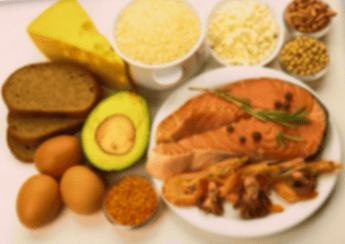Lots of fruit and vegetables, little meat and hardly any sweets or alcohol: theoretically, we know how to eat healthily. But we often don’t put this into practice in everyday life. Who can chop fresh salads or prepare delicious vegetable pans during the day if all they find are chip shops on the road or simply have no time to eat?
Life and gamble balance
In many professions – from operating theatre staff to shift workers or long-distance drivers – regular meals are the exception. The same is about gamblers. Even in many offices, there is neither a canteen nor a kitchen. Nevertheless: If it is somehow possible – plan regular meals. We have put together some general tips for everyday life on the job as well as for different professional situations.

Drink properly
Most of the time, the first thing you do in the office in the morning is go to the coffee machine. For many people, coffee then remains the only drink for the whole day. You should avoid this at all costs. Coffee and black tea can be included in the fluid balance, but it should not be more than four cups or two mugs a day.
In total, you should drink at least 1.5 litres of fluid per day to prevent fatigue, difficulty concentrating, headaches, and reduced performance. If you rush from appointment to appointment, you often simply forget to drink. This is how you manage to drink more and, above all, the right things:
- Place a bottle of mineral water within sight on your desk and fill a glass with it regularly.
- Drink a glass of water with every meal – whether in the office, in the canteen or out.
- Alternatively, you can mix a juice spritzer: This should consist of one-third juice and two-thirds water.
- Unsweetened fruit and herbal tea can be a pleasant change in winter as well as in summer, for example as iced tea.
The small hunger in between
Too many appointments, high time pressure, and constant hecticness often lead to a loss of physical and mental performance. Therefore, short breaks, a few minutes of exercise in the fresh air, and, of course, the right snack should not be missing in order to get through the day in a balanced way. A small snack such as some fruit or vegetables, yogurt, or a small sandwich is best for this. They help you stay fit and avoid food cravings.
Eating healthy in the canteen
Salads: Choose a salad as a side dish every day. Once a week, a large salad plate is a good alternative to a hot main course. It is best to make the dressing yourself from vinegar and high-quality oil. Ready-made dressings with yogurt or cream often contain a lot of fat.
Main course: For the main course, avoid chips and croquettes and choose potatoes, rice, or wholemeal pasta instead. Eat vegetables every day! Try to avoid breaded meat and go for fish once or twice a week.
Dessert: Instead of chocolate pudding and cake, try a quark dish or fruit salad.
Lunch break without a canteen
If you have to provide your own meals throughout the day, you should also look for variety. Eating a sausage sandwich for lunch every day will not satisfy anyone in the long run.
Make sure you have a sufficient supply of fresh fruit and vegetables. Transport-safe varieties such as apples, cocktail tomatoes, grapes, carrots or kohlrabi are well suited.
Put imaginative toppings on bread and sandwiches. Vegetarian spreads, pesto, or cream cheese are good alternatives to butter and margarine.
Prepare a larger amount of food the day before and take a portion of salad to the office, for example. If a microwave is available, you can also quickly heat up a meal.
Milk and dairy products provide energy and important calcium. So don’t forget yogurt, cheese, or whey on your menu.
“Emergency tips” for healthy eating on the road
Who hasn’t experienced it: when travelling on business, you don’t always have the opportunity to eat the right food on a regular basis. But with a few tips, you can eat well and tastily even when you’re on the road:
Don’t starve yourself all day, which inevitably leads to food cravings in the evening. If you don’t have time for hot meals, eat muesli, fruit, wholemeal sandwiches, and salads, if possible. These provide energy and vitamins.
If it has to be fast food, prefer wholemeal sandwiches or doner kebabs. Avoid ready-to-eat pizza, curry sausage, and French fries, as these usually contain a lot of fat.
If you are hungry in between meals, dried fruit, nuts, or muesli bars are suitable. But beware: these also have a lot of calories.